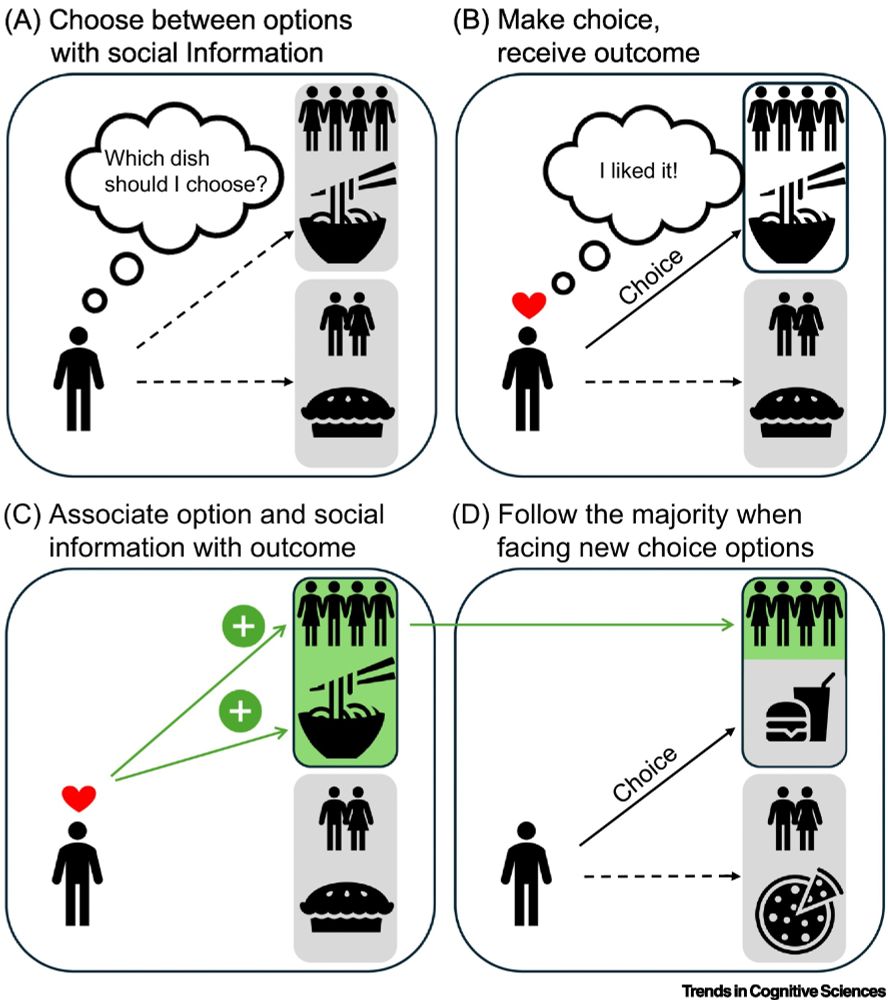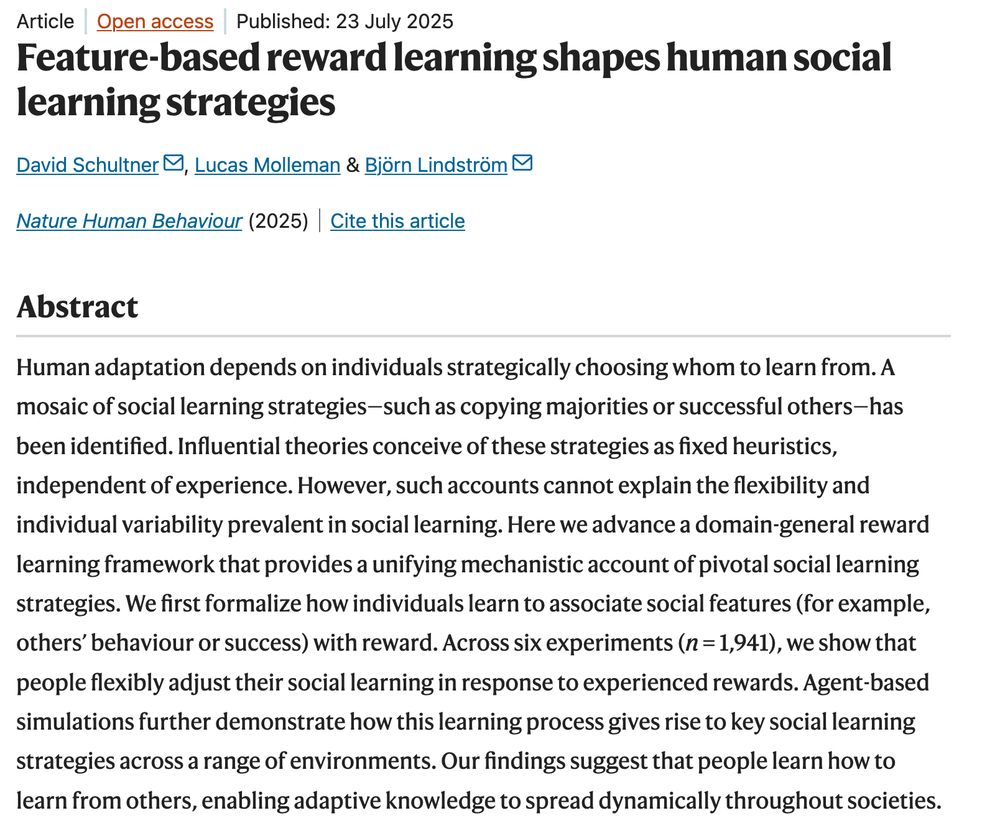www.cell.com/trends/cogni... 🚄

www.cell.com/trends/cogni... 🚄





🧠 Here, we advance a novel RL account—the Social Feature Learning (SFL) model—that explains how people learn to learn from others! 🤝
🧵👇

🧠 Here, we advance a novel RL account—the Social Feature Learning (SFL) model—that explains how people learn to learn from others! 🤝
🧵👇
🔹 Inequality aversion helped societies move toward prosocial states (blue)
🔹 Commonness bias reinforced selfish defaults (red) instead of promoting fairness

🔹 Inequality aversion helped societies move toward prosocial states (blue)
🔹 Commonness bias reinforced selfish defaults (red) instead of promoting fairness


🔹Inequality aversion helped societies move toward prosocial states (blue)
🔹Commonness bias reinforced selfish defaults (red) instead of promoting fairness

🔹Inequality aversion helped societies move toward prosocial states (blue)
🔹Commonness bias reinforced selfish defaults (red) instead of promoting fairness



